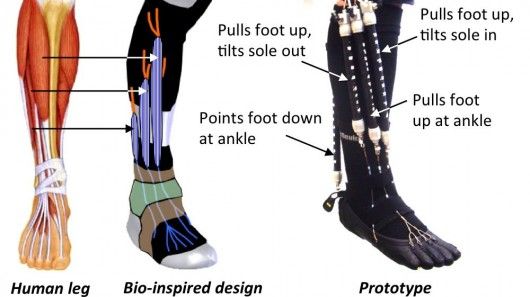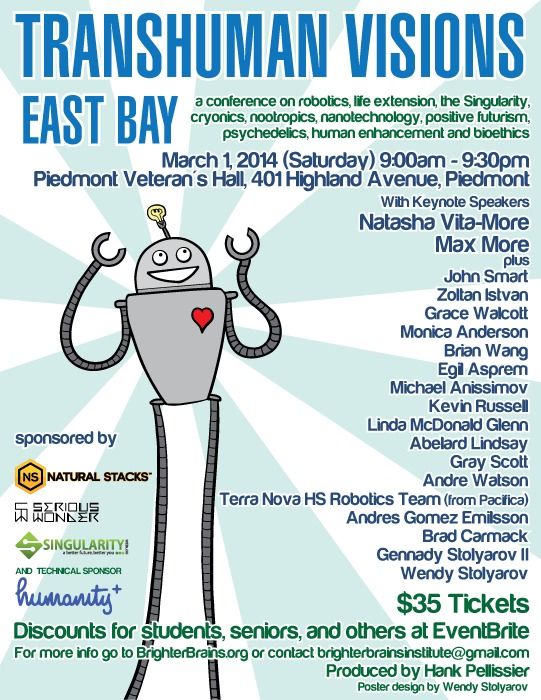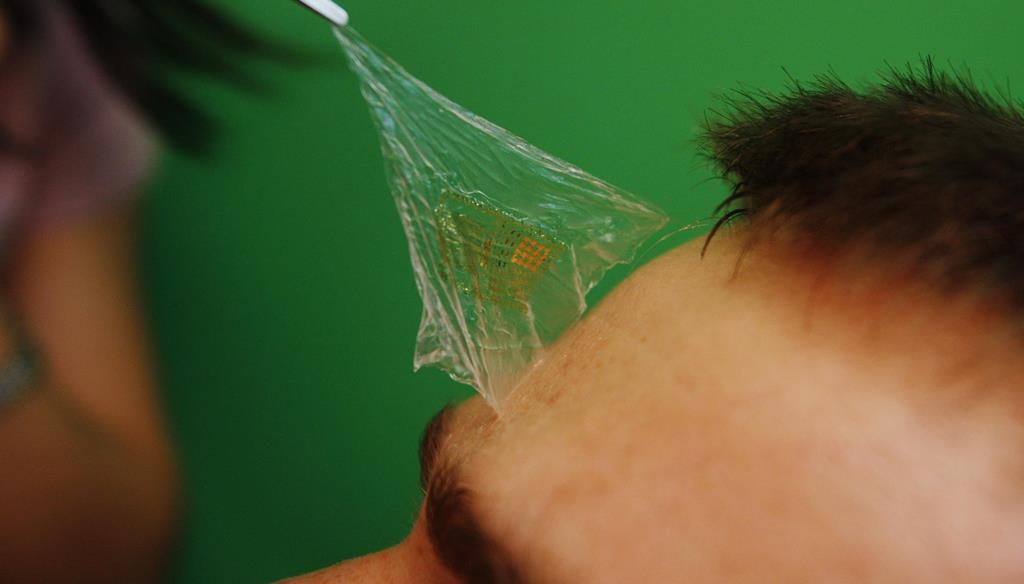Jan 25, 2014
Soft pneumatic exoskeleton could be perfect for use in rehab
Posted by Seb in categories: biotech/medical, exoskeleton


By Sarah Griffiths — dailymail.co.uk
![]()
It might resemble the giant exoskeleton as seen in the James Cameron film Avatar, but this terrifying-looking machine of the future is set to become a reality.
A team of Canadian engineers and innovators are working on creating a giant human-controlled walking ‘anti-robot’ called Prosthesis, which is being built ‘by humans, for humans’.
Written By: Cameron Scott — Singularity Hub

Back when Google was first getting started, there were plenty of skeptics who didn’t think a list of links could ever turn a profit. That was before advertising came along and gave Google a way to pay its bills — and then some, as it turned out. Thanks in part to that fortuitous accident, in today’s Internet market, advertising isn’t just an also-ran with new technologies: Marketers are bending innovation to their needs as startups chase prospective revenue streams.
By: Hank Pellesier,Brighter Brains - H+

Humanity+ members will be speaking at an exciting San Francisco East Bay transhumanist conference on March 1, that fans of Hplus should consider attending. Chairman Natasha Vita-More is a keynote speaker (along with her husband Max More) and recent HumanityPlus Board member Linda M. Glenn is also in the illustrious lineup. HumanityPlus is also co-sponsoring the event.
We have been using the same propellant system for rockets since the Chinese fire arrows in 1000 A.D. A gas is expanded in a tube to generate force. Enough gas and force and you can break the bonds of the earth.
From gunpowder to liquid propellants to solid rocket boosters, nothing except size and volume has changed.
New proposed systems such as nuclear engines, magnetic rail guns, ion engines are all options that have not been shown to be functional at this point in time.
Our popular fantasy TV and movies all have some unspecified, powerful propulsion system that can easily break our gravity well to send us to outer space.

Last week, PayPal President David Marcus tweeted “To clarify: we have no policies against using PayPal to sell Bitcoin mining rigs. We don’t support any currency txn whether fiat or BTC… for a host of regulatory issues. But we treat BTC and any FX txn the same way. We’re believers in BTC though.”
 You may have noticed we have a soft spot for sci-fi author Isaac Asimov. His fiction, especially as it pertains to robotics, cemented him in the sci-fi canon and advanced the thinking on what practical robotics would look like in the future.
You may have noticed we have a soft spot for sci-fi author Isaac Asimov. His fiction, especially as it pertains to robotics, cemented him in the sci-fi canon and advanced the thinking on what practical robotics would look like in the future.
He also used his fiction to entertain a foreboding question: Should a robot be able to kill a human?
Asimov decided not, and drew up three “laws of robotics” that governed how robots behaved in his fictional universes.

By John Frank Weaver — Slate

Harvey Milk famously advised his “gay brothers and sisters” to come out, but “only to the people you know, and who know you.” He understood the power of human empathy. It is hard to hate people you know and who know you.
We’ll soon see how human empathy shapes the design of artificial intelligence because, as it turns out, our empathy is so strong we will consider objects people if we can interact with them like people. Her played with this idea in a future where Joaquin Phoenix’s Theodore falls in love with his operating system, Samantha. But right now on Indiegogo, you can contribute to EmoSPARK, “the first artificial intelligence console committed to your happiness.”
John A. Rogers, University of Illinois

Fitness buffs are going gaga for gadgets like the Fitbit Flex and Jawbone UP — for now. Although the stylish rubber bracelets can monitor heart rate, sleep patterns and other vital signs, and even display them on a smartphone, John Rogers thinks wearable health can do better.
Today’s often clunky self-health trackers are “just hanging there,” said Rogers, a professor at the University of Illinois at Urbana-Champaign. As a result, they only measure a handful of biological functions. “We want to go for more sophisticated, clinical quality measurements in ordinary daily life. Being intimately in contact with the skin is the only way to do it.”
